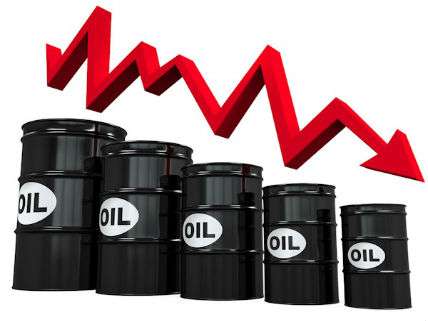Where Have All the Peak Oilers Gone?
Dancing on the grave of "peak oil" - will it stay buried?

In my November 2007 column, Peak Oil Again?, when oil prices had reached $100 per barrel, I concluded, "Some day peak oil production will be reached, but most oil reserve estimates suggest that there are good reasons to doubt that that day is now at hand." And that was before fracking and horizontal drilling had unleashed the shale oil revolution.
A quick Google check of the news finds that the more prominent peak oilers - Colin Campbell, Jean Laherrère, Kenneth Deffeyes, Daniel Goodstein - are maintaining a decorous silence as the price of crude sinks below $28 per barrel. After all, the International Energy Agency just warned that the world is "drowning" in oil. So no Jeremiads about the impending end of an oil-starved industrial civilization are appearing in the media. Nor, sadly, do many journalists seem interested in probing why the peakists' widely touted dire forecasts have, once again, proven wrong.
Well, one peak oiler, Richard Heinberg from the Post Carbon Institute, has actually spoken up recently on RT (Russia Today) during a program that discussed the current "oil crisis." The crisis is low prices, not peaking production. The RT interviewer asked Heinberg:
In your view will we ever see the oil prices return to their peak or are we here with this new reality for good?
R[ichard] H[einberg]: It's impossible to say what oil prices will do in the future.
Well, yes. But Heinberg was not always so sagaciously reticent. For eample, in the 2010 foreword to his 2007 Neo-Malthusian classic Peak Everything: Waking Up to a Century of Declines, Heinberg declared:
I argued that the industrial expansion of the past century or two was mainly due to our accelerating use of the concentrated energies of cheap fossil fuels; and that as oil, coal, and natural gas cease to be cheap and abundant, economic growth will phase into contraction. I further pointed out that world oil production was at, or very nearly at its peak, and that the imminent decline in extraction rates will be decisive, because global transport is nearly all oil-dependent, and there is currently no adequate substitute for petroleum. Finally, I noted that the shift from growth to contraction will impact every aspect of human existence—financial systems, food systems, global trade—at both the macro and micro levels, threatening even our personal psychological coping mechanisms.
Nothing has happened in the past three years to change that outlook—but much has transpired to confirm it. …
Thus Peak Oil likely represents the first of the limits to growth that will turn a century of economic expansion into decades of contraction.
In 2007, global crude oil production averaged around 84 million barrels daily; it is now about 94 million barrels per day. Peak what? With regard to the availability of natural resources, much has happened in the last five years; and nearly all of it has refuted the doom-laden predictions made in Peak Everything.
Did I mention that I have a chapter, - "Is the World Running on Empty?" - in my book, The End of Doom: Environmental Renewal in the Twenty-first Century, that analyzes how resource doomsters like Heinberg always get it wrong?


Show Comments (42)